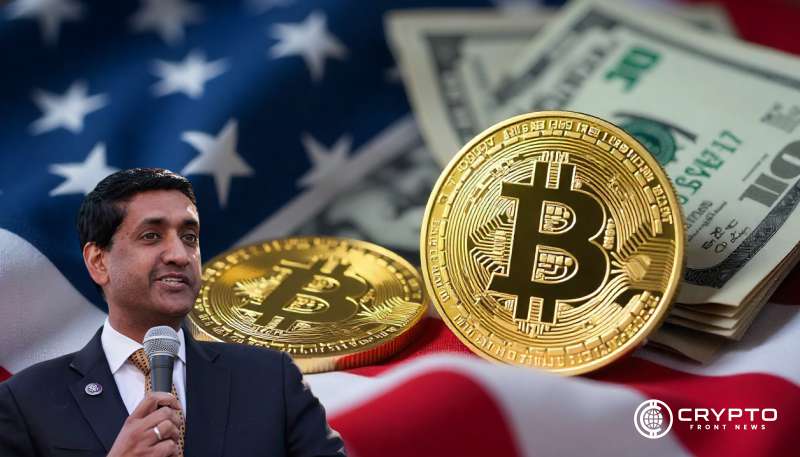- Ro Khanna’s new bill seeks to prohibit elected officials from owning or launching cryptocurrencies to enhance financial ethics and accountability.
- The proposal follows President Trump’s controversial pardon of Binance founder Changpeng Zhao, sparking debates over crypto influence in U.S. politics.
- The legislation mirrors Khanna’s earlier stock trading reform, aiming to extend transparency rules to digital assets held by public officials.
Congressman Ro Khanna has announced plans to introduce legislation that would ban the President and all elected officials from owning or creating cryptocurrencies. The proposal follows President Donald Trump’s pardon of Binance founder Changpeng “CZ” Zhao, which sparked strong political reactions.
Khanna Seeks to Restrict Lawmakers’ Crypto Holdings
Congressman Ro Khanna stated his upcoming bill would prohibit lawmakers and high-ranking public officials from owning or issuing cryptocurrencies. He described the proposal as a step toward improving financial ethics in public life.. The proposal is intended to mirror his previous 2023 Ban Congressional Stock Trading Act, which sought to prevent members of Congress from trading individual equities.
Speaking on MSNBC’s Morning Joe, Khanna accused President Trump of “blatant corruption,” alleging financial links between Zhao and the Trump family’s crypto venture, World Liberty Finance. He claimed the pardon reflected “money going into someone at the White House, and the White House taking official actions like pardons in exchange.”
Khanna further stated that public officials should be required to divest their digital assets or place them in blind trusts. His office later confirmed that the bill would be introduced within the week. The congressman added that the measure is not about technology but about maintaining transparency and accountability within government institutions.
The legislation comes as there is increased scrutiny of the political function of cryptocurrency. Critics claim that cryptocurrencies could create conflicts of interest for politicians, whereas proponents claim that such legislation could suppress innovation and equitable access to the digital economy.
Fallout from Trump’s Pardon of Binance Founder
The move to restrict crypto ownership among officials follows the controversy surrounding President Trump’s decision to pardon Binance founder Changpeng Zhao. The former Binance CEO had pleaded guilty to money-laundering violations in a $4.3 billion settlement with the U.S. Department of Justice. He served four months in prison, although Khanna incorrectly mentioned four years during his televised remarks.
Khanna alleged that Zhao, a foreign billionaire, had funneled money to groups like Hamas and Iran, while also financially backing World Liberty Finance. The news was posted on the public official’s YouTube channel and created a lot of buzz on the internet.
The bill would attempt to remove public servants from private financial interest, particularly in regards to digital asset companies. Khanna described the bill as restricting lawmaker ownership of digital assets, eliminating any doubt regarding ethics concerning future policy decisions.
If passed, the bill would require lawmakers to report digital assets on their financial statements, another blow to government regulation of political activity in the crypto space. The whole back-and-forth with Khanna’s bill shows the ongoing push-and-pull in Washington over money, politics, and digital finance.





